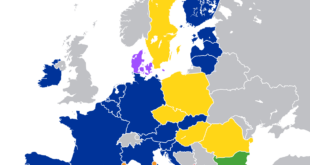- Chief Justice of India (CJI) U.U. Lalit on Tuesday showered rich encomiums on the country’s much-celebrated constitutional lawyer M.K. Nambyar for having propounded theories that were not accepted immediately in the 1950s but ended up gaining acceptance over the years and were also found to be fundamental.
- Delivering the second M.K. Nambyar Memorial Lecture organised by SASTRA University under the aegis of C.S.
- Vaidyanathan Chair on Law and Development, he said, the seeds sown by Nambyar, through his extensive work, had now grown into a huge banyan tree under which every citizen could find solace.
- The CJI recalled how Nambyar had propounded theories such as the necessity to read Articles 19 (right to freedom of speech and expression) and 21 (right to life and personal liberty) of the Constitution together, since a common thread runs through them, while arguing the famous A.K. Gopalan’s case before a six judge Bench of the Supreme Court.
- It was in the same case, he had also propounded the theory that a person could not be deprived of his personal liberty except by procedure established by law and that such procedure must also be a proper procedure.
- All six judges were in awe of his submission and it was evident by the way they had extensively recorded his submissions.
- However, five of the judges in the Bench, including Justice M. Patanjali Sastri, did not agree with his views. Justice Saiyid Fazal Ali alone wrote a dissenting verdict agreeing completely with the submissions made by Nambyar.
- This minority view ended up being one of the “classic dissents” in the constitutional history of India, the CJI said.
- He pointed out that the submissions made by Nambyar and the decision taken by Justice Fazal Ali were found to be the correct law by the Supreme Court in the subsequent Maneka Gandhi and Puttaswamy cases.
- The CJI also hailed Nambyar for having been instrumental in applying the ‘basic structure’ doctrine to the Indian Constitution.
- In his address, senior counsel C.S. Vaidyanathan said it would be better to review the NJAC judgment by a larger Bench and ensure a formal process of consultation between the judiciary and the legislature in appointment of judges if it was true that the Supreme Court collegium now sends recommendations only if they were to be accepted by the government.
- “What was sacred to Nambyar and to all of us too is the independence of the judiciary. It is much better to review the NJAC judgment by a larger Bench and then have a formal process of consultation.
SOURCE: THE HINDU, THE ECONOMIC TIMES, PIB
 Chinmaya IAS Academy – Current Affairs Chinmaya IAS Academy – Current Affairs
Chinmaya IAS Academy – Current Affairs Chinmaya IAS Academy – Current Affairs



